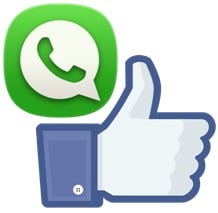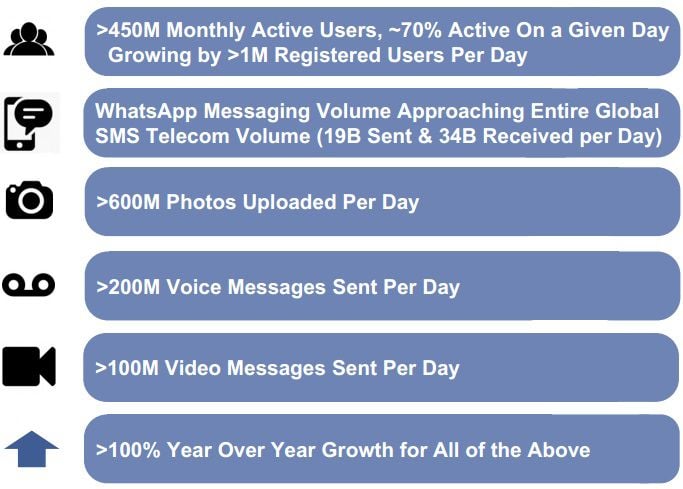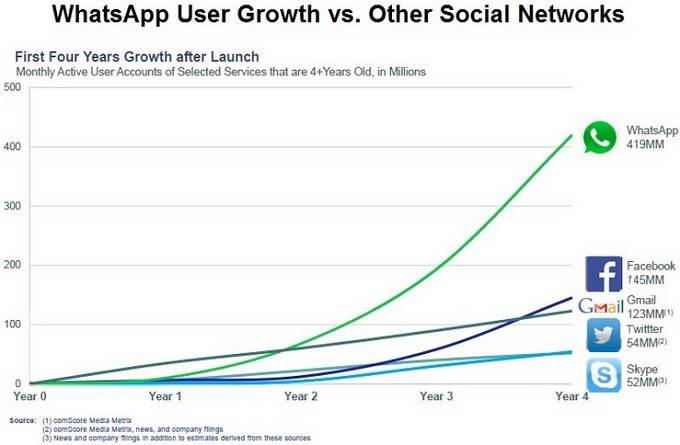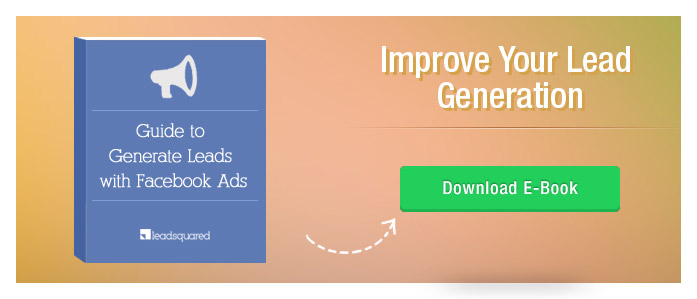So, last week after news broke out about Facebook buying social messaging app WhatsApp for a staggering $19 billion, all eyes lit up, while most marketers and analysts were questioning the price tag, others were worried as to how this deal will affect them. This deal is the second-largest in the last decade and a half after Hewlett-Packard’s acquisition of Compaq in 2001.

Why WhatsApp?
“Attention is a zero sum game; every minute spent in Snapchat or LINE or WhatsApp is a minute not spent in Twitter or Facebook or Instagram”
– Ben Thompson, Technology Blogger

Here is a graph to reinforce my statement.

The Facebook WhatsApp deal makes a lot of sense because WhatsApp is giving people an opportunity to share and connect at a cost which is much much lower than sending SMS & MMS. Plus, marketing gurus have also predicted it as a medium for sharing visual content, a lot like Facebook’s IM. Thus, even if WhatsApp is not being used as an advertising vehicle, it is in line with FB’s long term goal: that of keeping people connected.
There was a recent scare in Facebook when young adults were moving away from them to mobile messaging/chatting apps such as WhatsApp. So, the Facebook WhatsApp deal will help Facebook, which was loosing numbers, to connect with this set of audience who are always looking for newer ways to communicate.
So, what does the Facebook WhatsApp deal mean for marketers?

Though Facebook has clearly mentioned that despite the deal, WhatsApp will run independently, here are a few implications that may take place should Facebook decide to integrate the two:
a.) Through WhatsApp, brands can embrace marketing on mobile as a core philosophy and ensure that all or most of their products/services are designed for mobile phones. They can reach out to fans, market their brand offerings on mobiles etc.
b.) If Facebook lets marketers integrate their business pages on WhatsApp, it would open a lot more channels of communication. Website visitors first visit your business page, then get directed to other apps/pages.
c.) If Facebook allows ‘Poke’ on WhatsApp, this will give marketers the opportunity to create immediacy by sharing offers, promo and branded content for a limited time period. Poke is an app to send messages, photos and videos, to a friend or multiple friends at once. When you send messages, photos and videos, you can choose how long they’ll be available for your friends to view. They can be live for 10 seconds, post which they will erase.
d.) It may only be a matter of time before WhatsApp is commercialized. Brands can leverage their products/services with targeted location-based ads. With WhatsApp’s voice communication, brands can get celebrities/endorses to market their products through voice messages. This could also offer e-commerce brands to directly sell to customers via WhatsApp.
If done well, the Facebook Whatsapp deal can be a great offering to brands! What do you think? Leave me a comment.








![[Webinar] Maximizing ROI with WhatsApp CRM](https://www.leadsquared.com/wp-content/uploads/2024/07/Maximizing-ROI-with-WhatsApp-CRM-webinar-popup.gif)